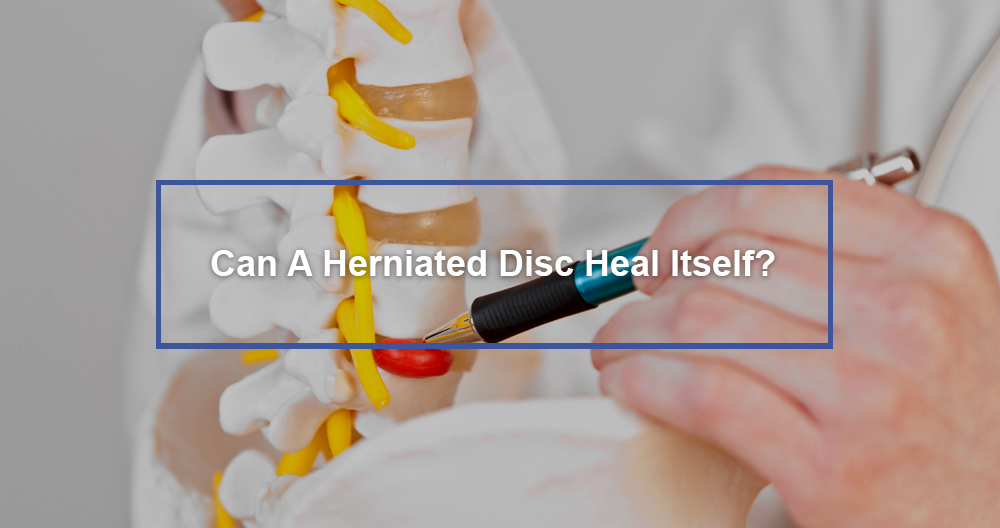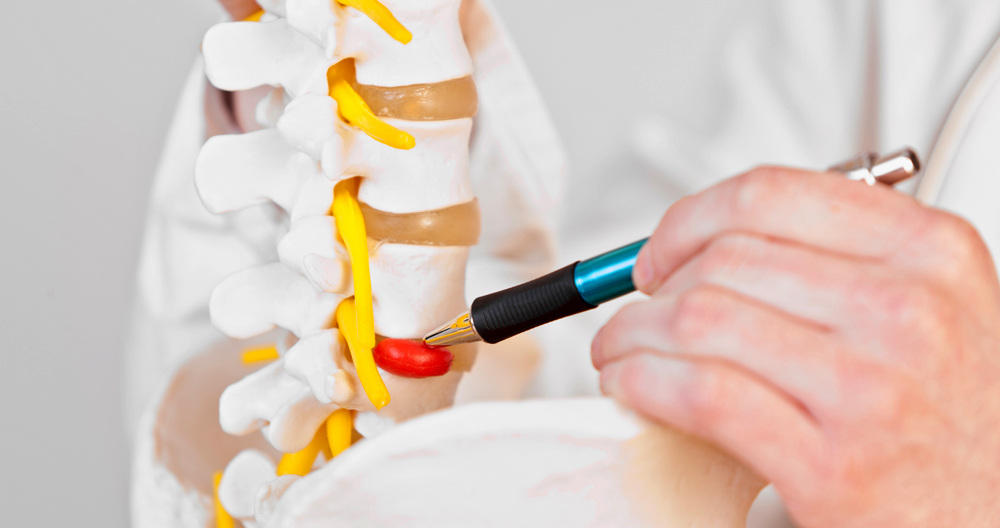
It is common for 80% of us to experience a herniated or slipped disc at some point in our lives. It is possible for some people to not even notice, and many will heal themselves without surgery.
What’s the Difference Between a Bulging Disc or a Herniated Disc and a Slipped Disc?
The discs (or vertebrae) are small, pillowlike devices found in the spine. They go between each bone of the spine. To prevent bones rubbing against one another, and to prevent shock from being moved around, the discs are filled in jelly-like material.
Over time, discs may become harder and less flexible. In most cases, micro-trauma is small traumas that cause disc wear.
Too much pressure on the disc can cause it to bulge outwards, similar to a tube of toothpaste. You can press into the middle of the tube to make the bulge appear like toothpaste tubes. The bulge that touches a nerve can cause pain, weakness, or tingling sensations. Even if the bulge doesn’t touch any nerves, it might not be obvious that the disc has been injured.
The disc may slip or herniated when it is subjected to sudden trauma or force, such as in a car crash. When someone refers to a slipped disc, they mean a herniated or damaged disc.
Imagine walking on one end and then the other. The contents would explode and split open. This is very similar in nature to what a herniated or bulging disc does. The material within the disc can touch a nerve and cause severe, even excruciating, pain.
Can a Herniated disc heal on its own?
Certain spine conditions can become more common as we age due to wear and tear. My practice as a spine doctor sees many young, active patients with herniated spinal discs. Many questions are raised about whether or not this condition can heal by itself.
Why was this possible?
A disc herniates roughly half the time due to an injury. It could have happened that the patient was moving in a certain manner and felt a “pop”, followed by severe pain running down their legs. It is possible that the patient has experienced it half of all the time. The patient wakes up each morning in pain. Normal daily activity eventually caused the disc to herniate.
It is all genetics. There isn’t much that the patient can do to prevent this. The disc was becoming weaker and it was only an issue of time before it ruptured.
Why does my lower back hurt?
It is useful to know a little bit about the anatomy behind the spine. The spine is made up of individual bones called vertebrae. An intervertebral disc lies between them. The discs support your spine and keep them from rubbing against each other. Each disc is made of an outer ring called “annulus” and an inner ring filled with a fibrous rubbery material called “the nucleus pulposus”.
If there is a weakness in the disc, it can cause a tear in its outer ring. This will allow the inner disc material, or herniate to push out into the spinal channel. This disc material can put pressure or irritation on nerves, leading to them becoming inflamed. While there may be some pain in the back, major nerve injuries are usually the cause of most symptoms.
Imagine nerves as wires that carry signals from the brain into the muscles. When they become inflamed it can be like an enormous electrical short-circuit. This can cause significant pain along the nerves, and often a burning sensation. Most herniated spines are found in the lower back. These nerves run down the legs and affect the sciatic nerve. Patients may also feel numbness or weakness in this area.
Can a herniated disc heal in time?
While some patients are able to heal themselves, others may experience a gradual improvement in their symptoms. Sometimes the inflammation will subside and, if the disc fragment is small, the patient’s discomfort may disappear within weeks.
The reality is that even if patients feel better, there is still the risk of another flare-up. There is still a hole in disc’s outer ring. A sudden movement can cause disc material to herniate and put more pressure on nerves. This can lead to further inflammation.
Is it time for surgery to repair a herniated disc
Perhaps it is time to think about having surgery when you have the following:
- You feel pain that persists or becomes unbearable.
- Standing or walking is not easy
- Progressive weakness and numbness
- Bladder or bowel problems develop
Most herniated disc surgery is minimally invasive. The disc’s “loose” section is only removed. As much healthy disc as possible can be retained. The goal of this procedure is to preserve the normal anatomy.
What Happens if a Herniated Disc is Left Untreated?
Some people can wait several months before the body reduces the amount of the substance so it only bothers a certain nerve. In the meantime, your back feels terrible and you spend weeks in bed. Some people notice that symptoms worsen over time.
There may be serious complications if the condition is not treated. Permanent nerve damage can occur if a herniated spine isn’t treated. Although not common, a herniated spine can lead to nerve damage. Some people lose their feelings in the genital area or buttocks. Others lose bladder control and bowel control.
Although these complications are not very common, they do happen. You don’t need to live in constant pain for weeks when you can get pain relief quickly and have your pain gone within days.
What’s the best way to heal a herniated disc
The best treatment for a herniated spine is dependent on your physical condition and health. A study has shown that the use of chiropractic care to treat herniated spines is safe. If the chiropractor believes that you have any other health issues, or if they feel you need surgery or cortisone injections to treat them, they’ll refer you to the right specialist. I also wrote a guide on natural remedies for herniated discs.
What does a Chiropractor do with Herniated Discs
The type of herniated disc and their medical history will all play a role in the treatment. Your chiropractor will prepare a treatment program and explain the steps that he will take to heal your herniated spine. The following may be part of your treatment plan:
- Adjustments and manipulations of the spine
- Non-surgical spinal decompression
- Pelvic blocking techniques
- Ultrasound
- Infrared
- Chiropractic massage therapy
- Thermotherapy or ice therapy
- Stretching program
Your chiropractor will treat herniated disc by aligning the spine correctly, moving the nerve from the source, and then closing the gap. In a case study, patients who had been referred for surgery to repair herniated spines turned to chiropractic. They found that their symptoms improved dramatically within five weeks. Three out of four patients with herniated spines reported significant pain relief after only a few gentle spinal adjustments.


